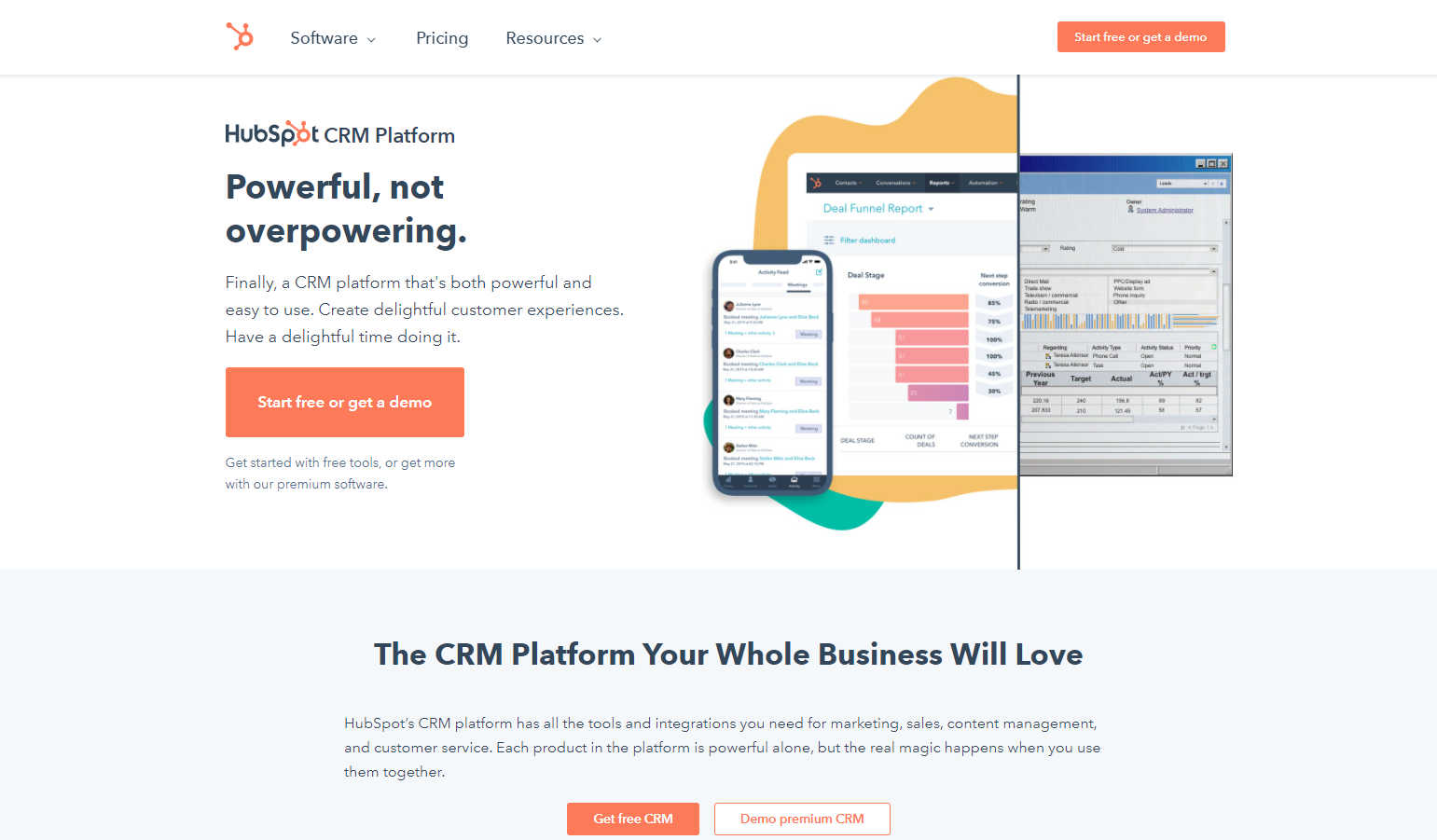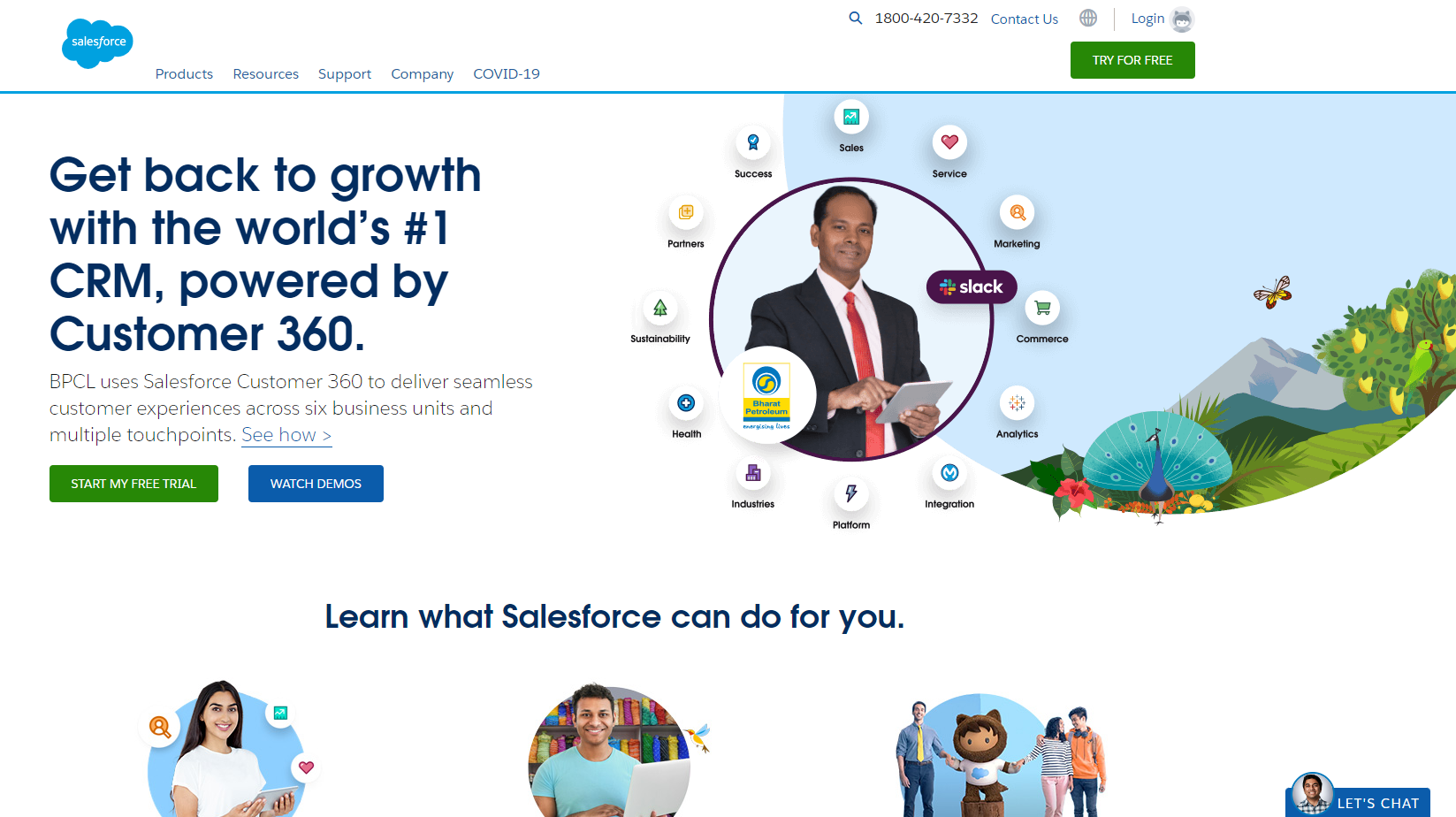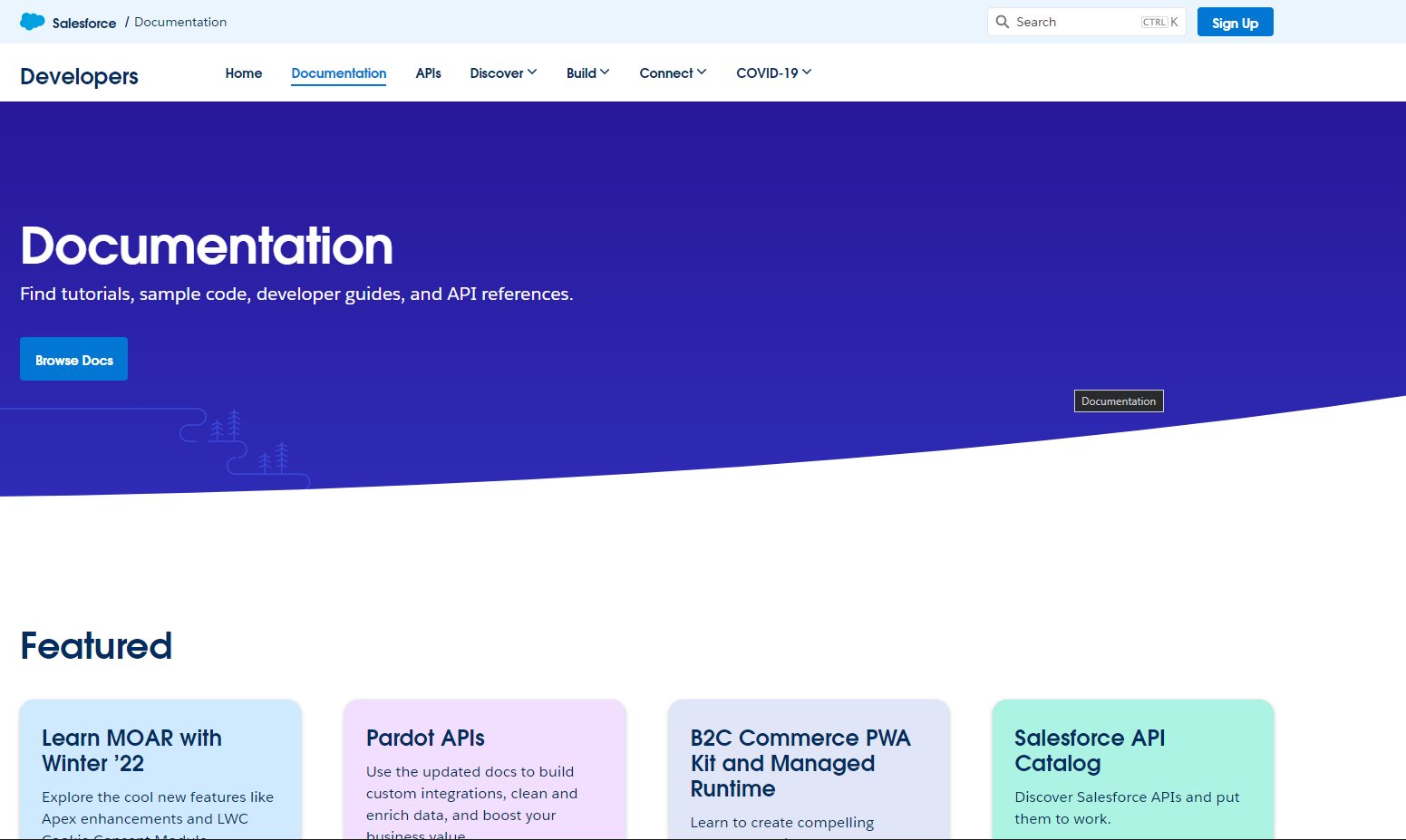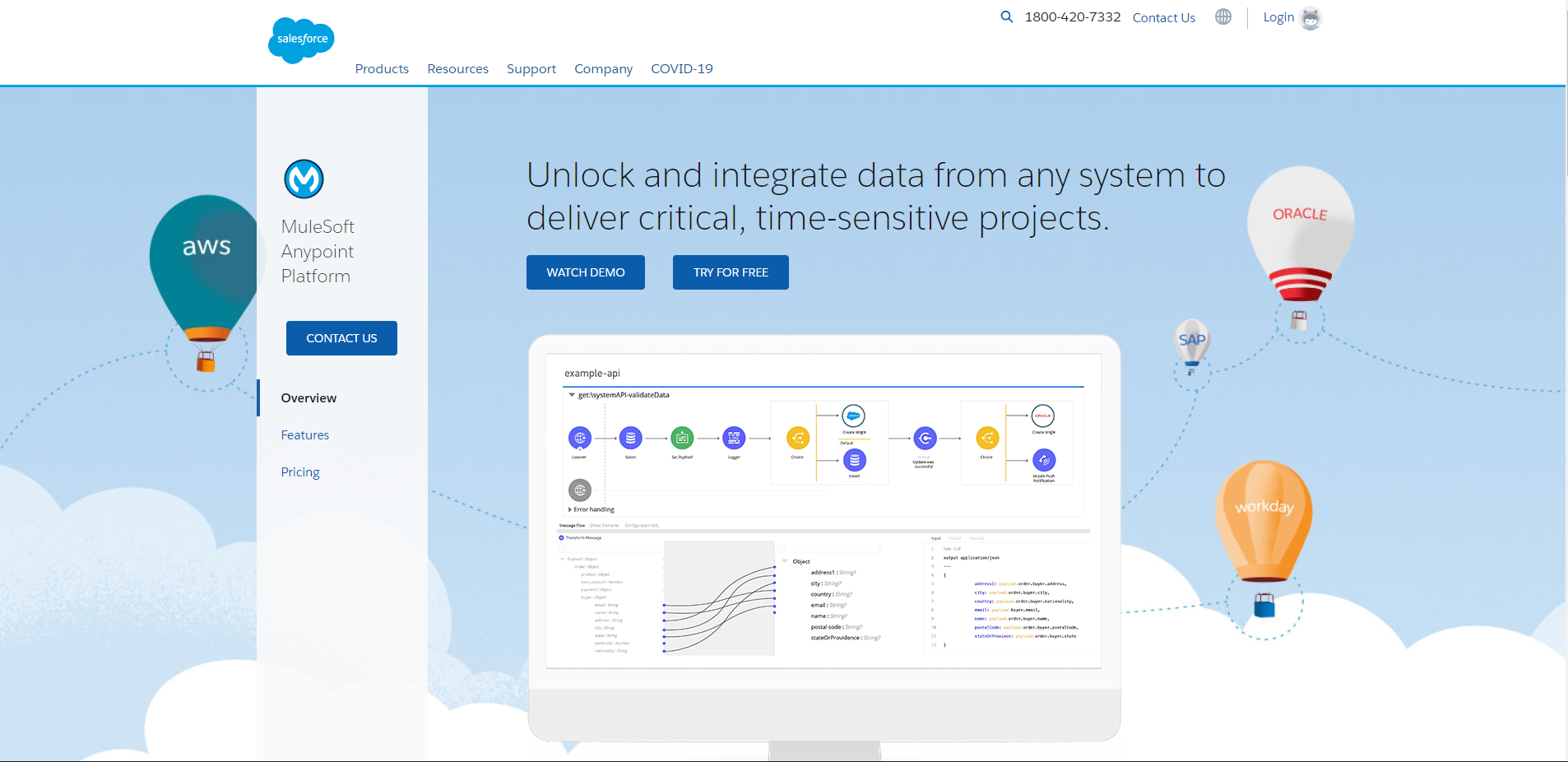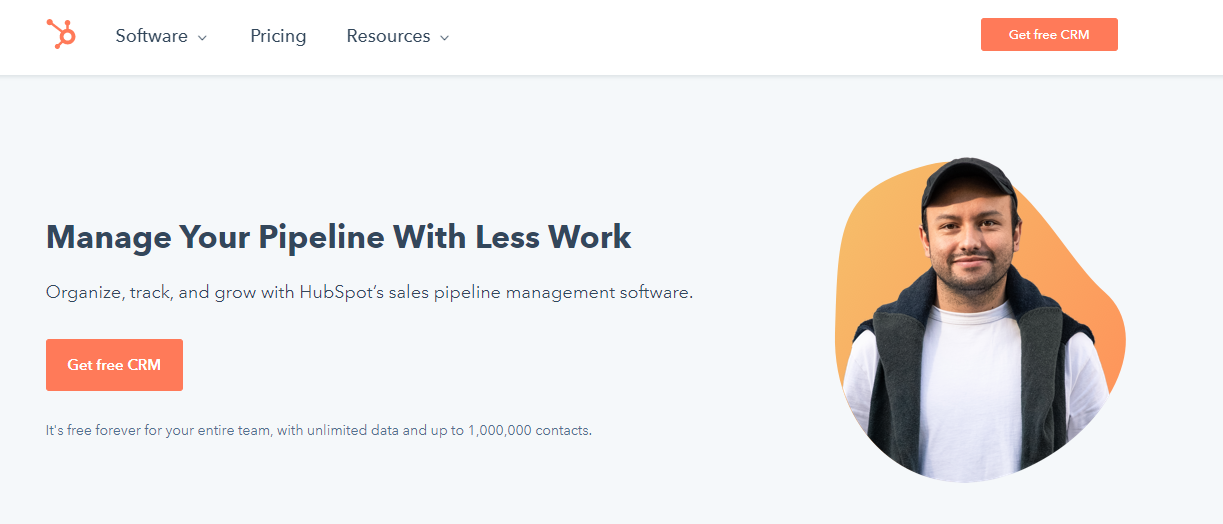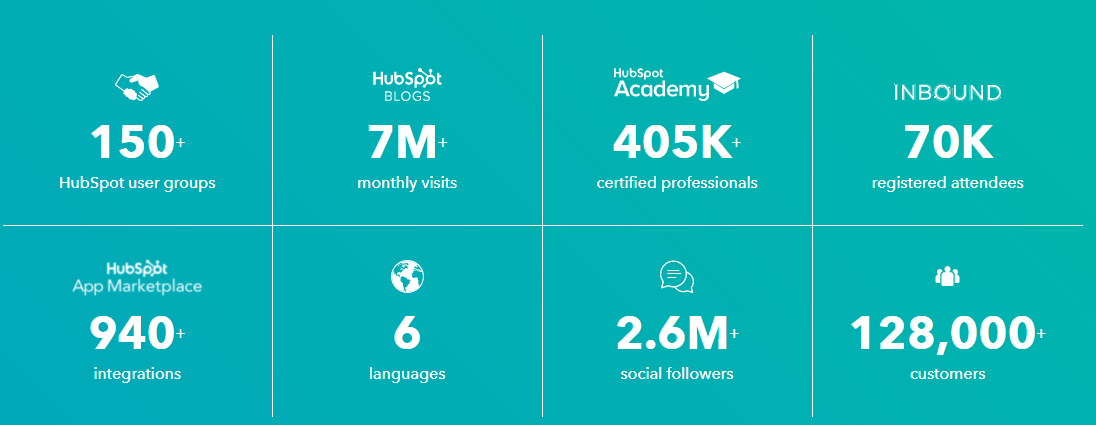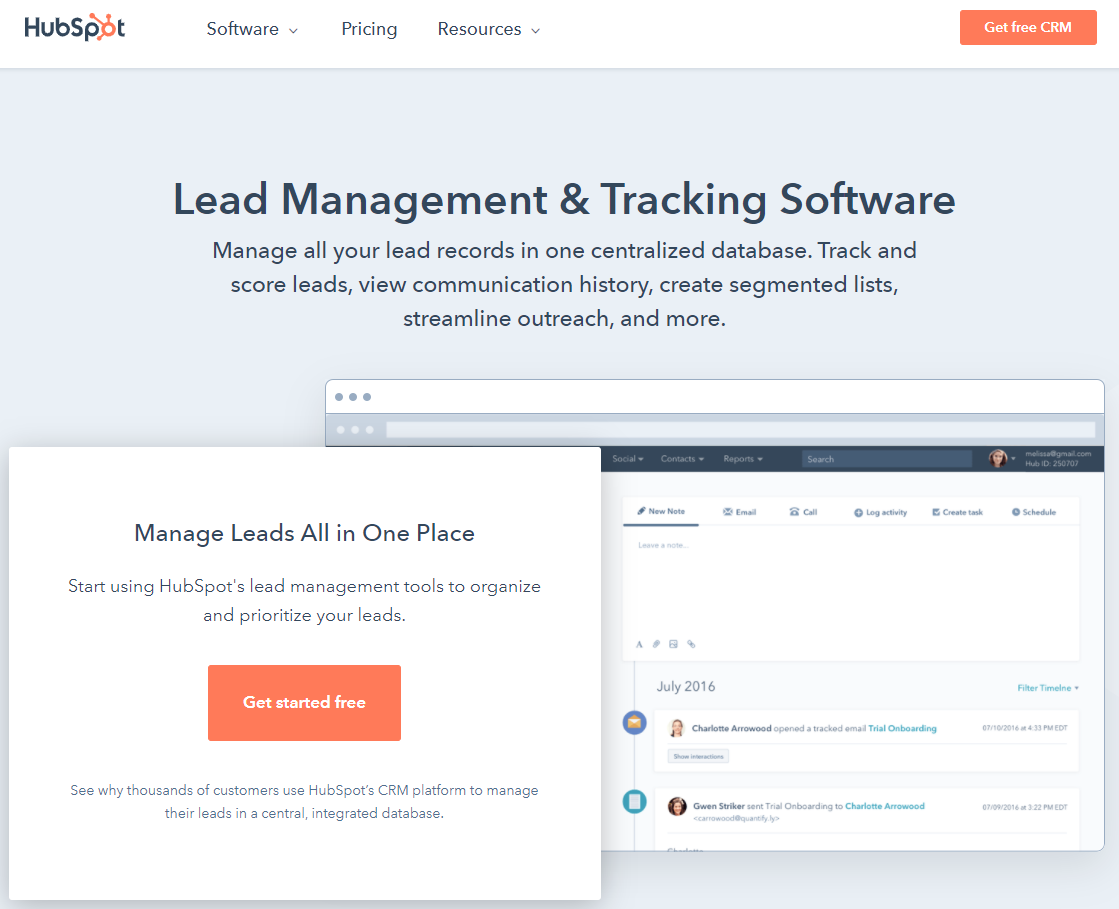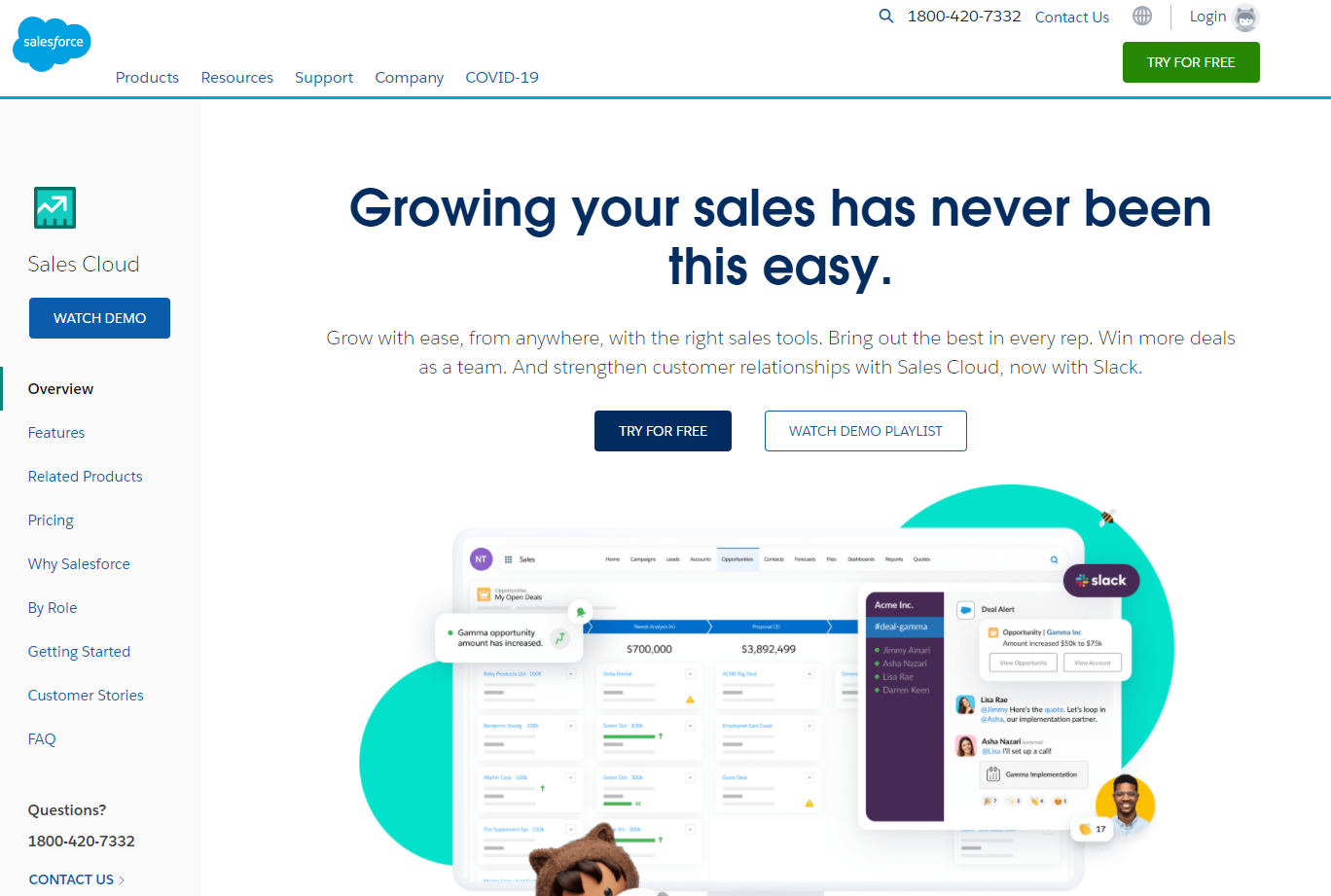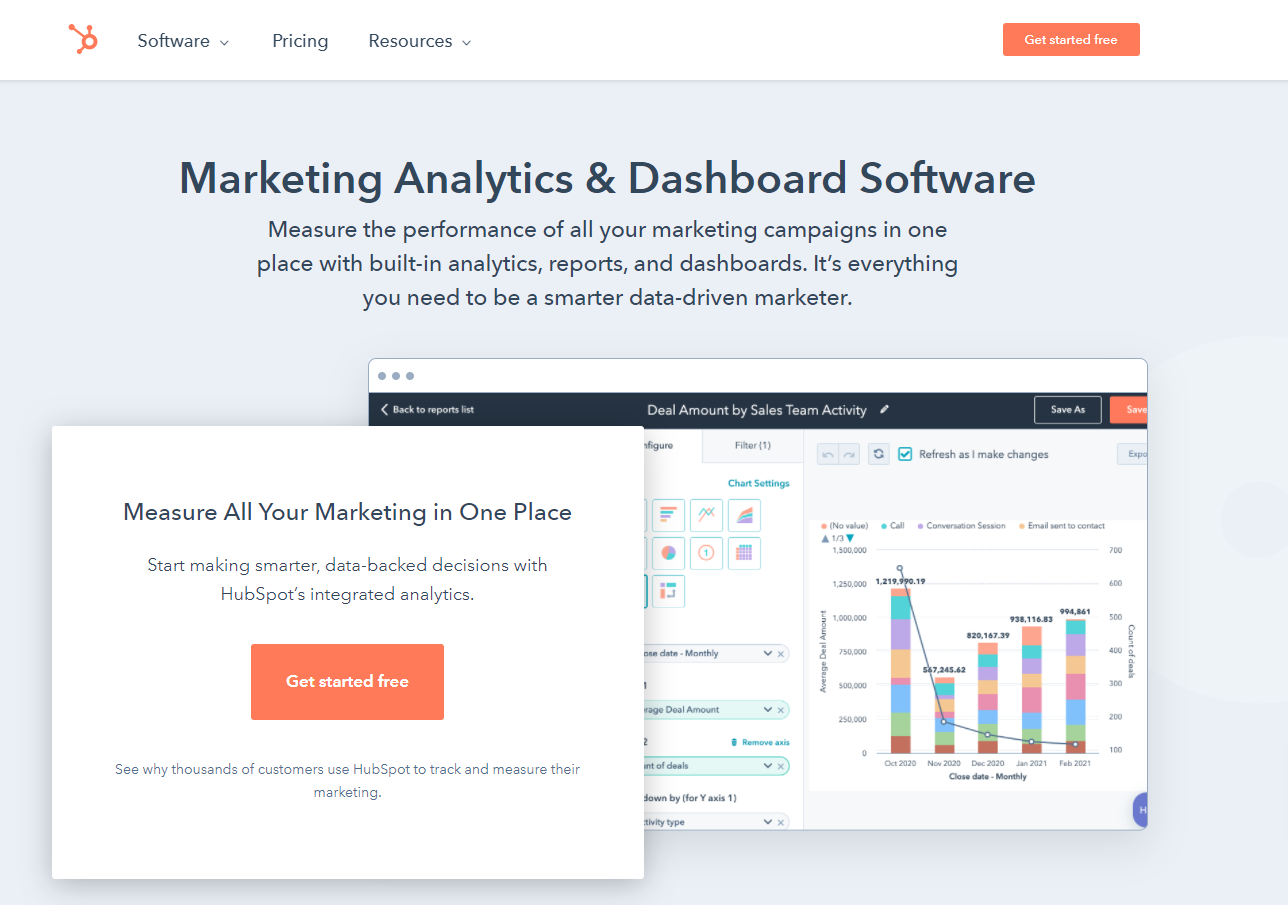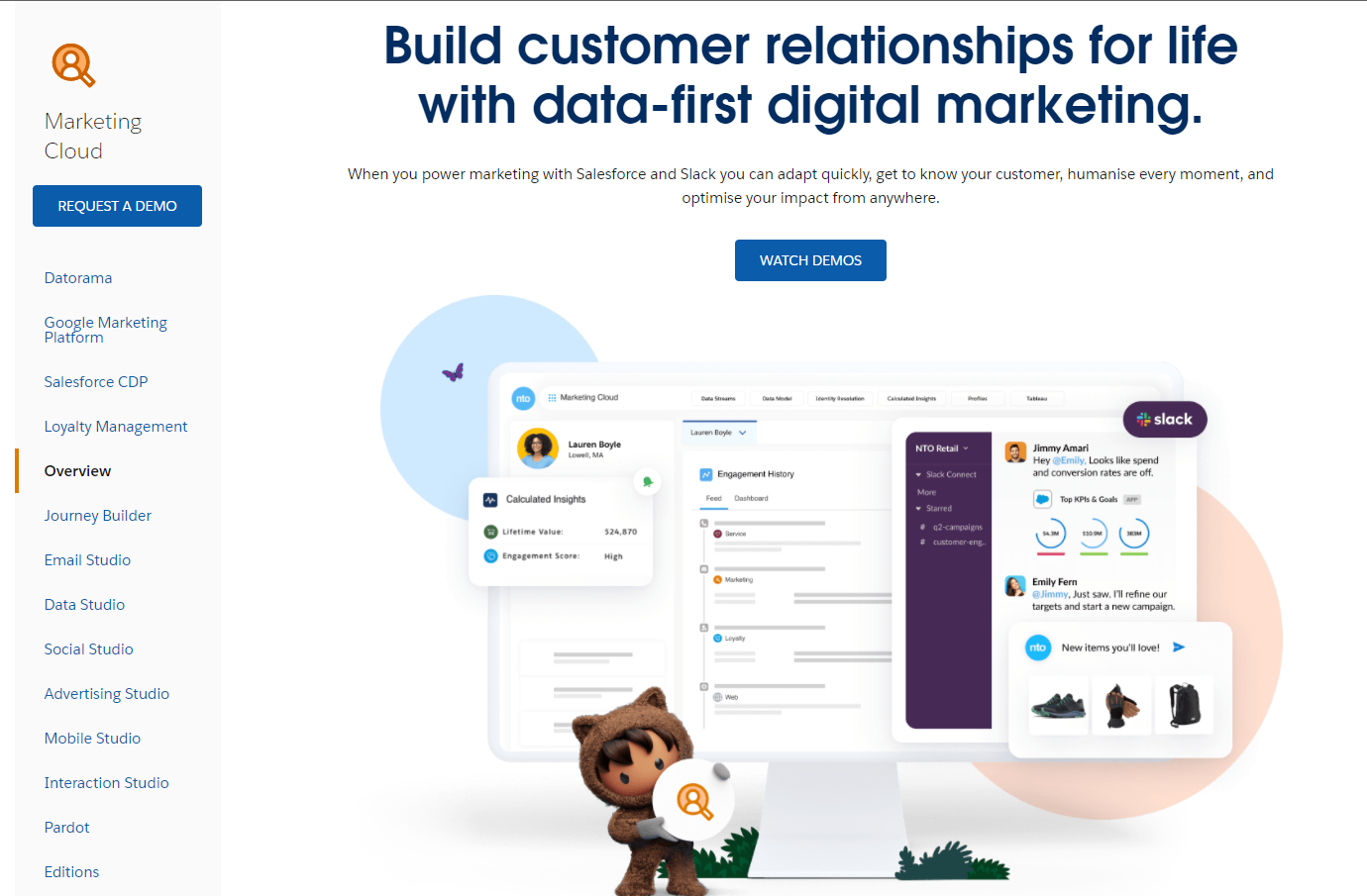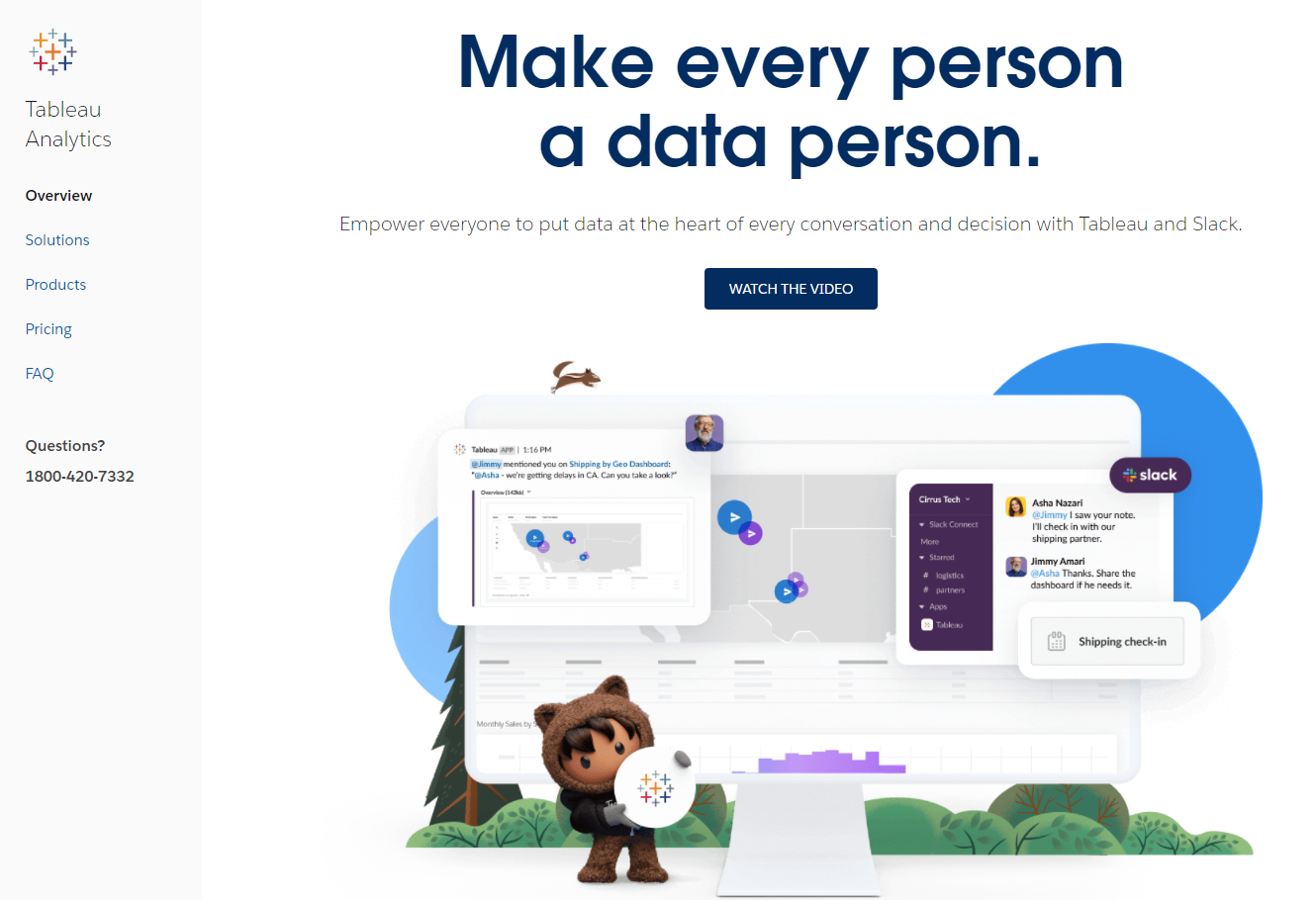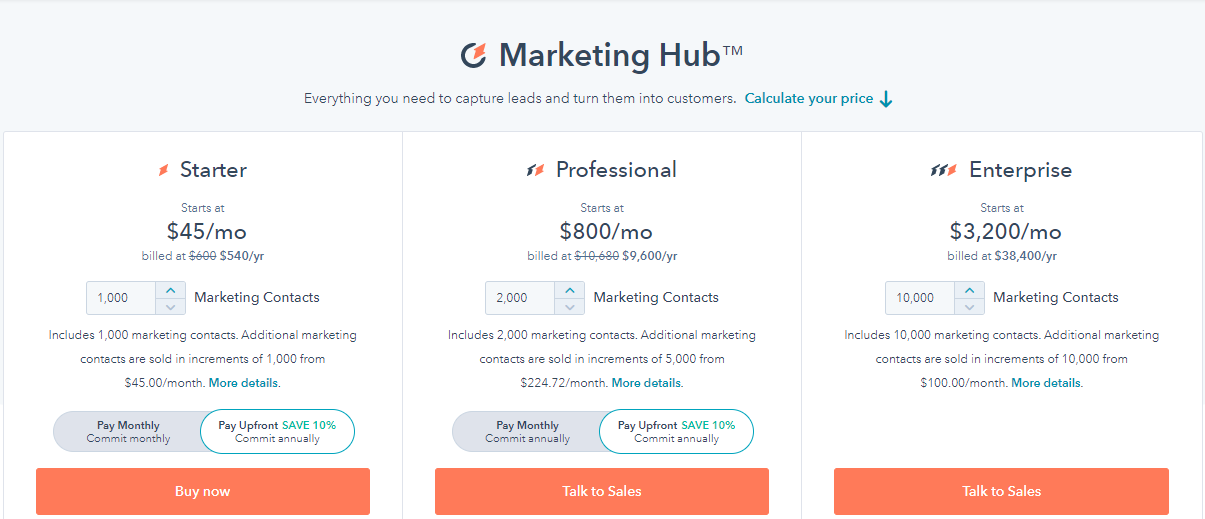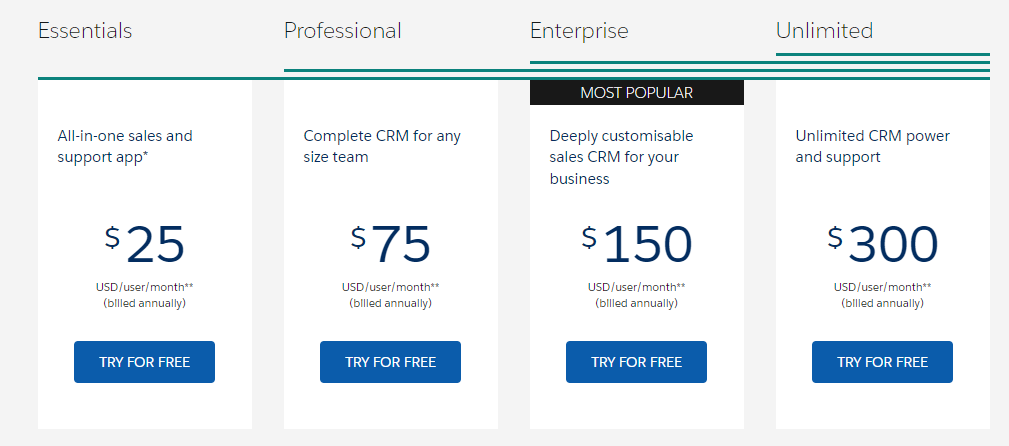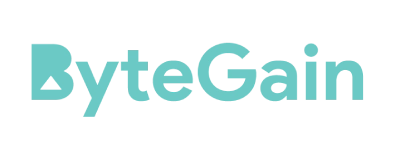Are you confused between HubSpot vs Salesforce ? Struggling to know that which one to choose and why?
If yes then stay tuned with us till the end to find your idol one.
Let’s start with the common differences.
HubSpot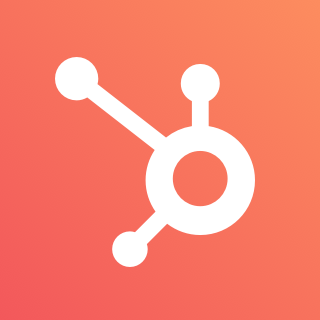 Check out
Check out
|
Salesforce Check out
Check out
|
|---|---|
| $45 per month | $25 per month |
HubSpot is the ideal tool for providing a seamless customer experience. The CMS Hub is a popular among designers and developers for one simple reason: it allows marketers to make changes quickly and easily without having to go back and forth. |
Salesforce is best suited to larger or growing enterprises that require a lot of customisation or integration. Smaller firms and those without a crew to handle customization and change requests will almost certainly overpay for CRM software. |
|
|
|
|
|
|
|
Even the most unskilled users will find HubSpot to be quite simple to use. In the free trials, the anonymous user finds it simple to learn. The support is top-notch, as well as all the helpful resources on offer. |
Salesforce does not provide any form of free plan, HubSpot is a compelling competition. Salesforce's features make learning it a bit complicated and challenging for newcomers. |
|
HubSpot is designed for small businesses who want to grow in the future. In terms of features and affordability, every newbie finds it to be the best. Due to its lightweight basis, HubSpot is the finest choice – especially given the variety of features and connectivity provided by this free CRM. |
Salesforce is the best choice if your company has a larger customer base to serve and wants to expand capabilities while staying within the constraints of needs, structure, and goals. |
|
If you're a do-it-yourselfer with limited assistance needs, HubSpot is the superior alternative. It lags somewhere in facilities of quick responses. It provides the best services. |
Salesforce has a premium package that includes 24/7 phone assistance, a dedicated success manager, and a guaranteed one-hour response time for serious situations. |
| Check out | Check out |
This article is all based on HubSpot vs Salesforce.
Salesforce is one of the most widely used customer relationship management (CRM) solutions globally. Salesforce is, in fact, superior to HubSpot for big organizations. Additionally, Salesforce is a more effective sales CRM than HubSpot CRM.
It has a robust third-party integration ecosystem, powerful developer tools for deep customization, and a diverse product portfolio ranging from customer relationship management (CRM) management to enterprise resource planning (ERP) applications.
Because Salesforce offers so many various price choices, the best course of action is to get a quotation to determine the total cost to your organization. By contrast, HubSpot is undoubtedly a superior CRM for small firms than Salesforce.
HubSpot is also a superior marketing CRM solution than Salesforce but by a little margin. Notably, it is a freemium model — you may use HubSpot CRM for free, with the firm urging you to pay for further upgrades and services as your business grows.
Throughout this essay, we’ll compare HubSpot vs Salesforce. These are not, of course, the only CRM tools to consider. Consider some of the other possibilities listed below. Alternatively, continue reading to discover more about Salesforce vs HubSpot.
Salesforce is a CRM behemoth on a worldwide scale, with thousands of businesses gladly paying for its services. Meanwhile, HubSpot enables you to get started for free.
Is it worth it to pay for Salesforce or the premium features offered by HubSpot? Both CRM solutions are quite powerful, offering a plethora of functions to your staff.
The critical issue is not which CRM platform is the best in general, but which Hubspot vs salesforce CRM platform is the best for your business.
We’ll compare Salesforce vs HubSpot to help you understand their respective strengths and weaknesses.
Contents
- HubSpot vs Salesforce 2024: Overview
- HubSpot vs Salesforce: Workflows & Documentation
- HubSpot vs Salesforce: Support & Training
- HubSpot vs Salesforce: Integrations
- HubSpot vs Salesforce: Pipeline Management
- HubSpot vs Salesforce: Adoption
- HubSpot vs Salesforce: Capture, Lead Generation & Management
- HubSpot vs Salesforce: Sales Features
- HubSpot vs Salesforce: Marketing Features
- HubSpot vs Salesforce: Analytics & Reporting
- HubSpot vs Salesforce: Pricing Comparison
- FAQs on HubSpot vs Salesforce:
- Is HubSpot or Salesforce better?
- What's the difference between Salesforce and HubSpot?
- Is HubSpot a Salesforce competitor?
- What is the purpose of HubSpot?
- Conclusion: HubSpot vs Salesforce 2024
HubSpot vs Salesforce 2024: Overview
If you’re comparing Hubspot vs Salesforce, we’ve covered all you need to know in this piece to help you make an educated selection.
What is Hubspot?
HubSpot includes everything users need to organize, manage, track, and improve customer relationships. Get rid of spreadsheets, manage your pipeline, gain greater customer insights, and increase sales speed.
Instead of sharing spreadsheets or looking for emails, the CRM will allow your entire firm to operate off of a single source of truth about the contacts in your database.
Every encounter is recorded in a timeline, which includes notes on the contact as well as the items they’ve viewed.
What is Salesforce?
Salesforce is a configurable customer relationship management (CRM) system that helps organizations of all sizes increase sales, automate operations, and make better decisions in order to expand quicker.
Salesforce CRM gives your sales staff access to real-time customer data in one place, as well as insights through dashboards and reports.
Lead and contact management, sales opportunity management, and workflow rules and automation are all possible with Sales Cloud.
HubSpot vs Salesforce: Support & Training
If you’re a do-it-yourselfer with limited assistance needs, HubSpot is the superior alternative.
Salesforce provides a basic support package to all customers, which includes access to customer success communities and the option to submit product support issues online with a guaranteed two-day response time.
There is also a premium package that includes 24/7 phone assistance, a dedicated success manager, and a guaranteed one-hour response time for serious situations.
Users should expect to pay roughly $1,500 for a remote onboarding session, while in-depth support meetings to assist with complicated customization difficulties can cost upwards of $5,000. Even free users will get a response within 24 hours for simple product concerns.
HubSpot and Salesforce both have active online user communities and provide certifications, training, and live events to assist clients to improve their expertise and understanding.
HubSpot provides several certifications, most of which are focused on inbound lead generation.
Salesforce training and certification (also known as the Trailblazer Community) places a far greater emphasis on the technical components of CRM systems, teaching users how to modify the system, configure complicated processes, and even write in Salesforce’s APEX language.
HubSpot vs Salesforce: Integrations
The majority of contemporary enterprises rely on integrations to prevent fragmented days and productivity loss. Salesforce has an edge in terms of integration.
It allows businesses with Developer access to create their integrations – using an open API.
Salesforce interfaces with a variety of additional technologies to help you manage your company more efficiently. The Salesforce Ecosystem has a sophisticated platform for products and integrations dubbed App Exchange.
It integrates with SAP, Google Cloud, Intuit Quickbooks, Mail Chimp, and Zen Desk, among other apps. It integrates with on-premises legacy systems and cloud-based SaaS applications. Additionally, it purchased MuleSoft lately.
HubSpot offers a simple-to-use integration library with 270 pre-configured connectors. It interfaces with Slack, Jira, and Mail Chimp, among others.
HubSpot vs Salesforce: Adoption
While there are certain advantages to a product with a large user base, it is most emphatically not the greatest indicator of product quality.
A vibrant user community may assist you in locating peer assistance, online information, and other resources of a similar kind.
As previously stated, Salesforce is utilized by over 20% of businesses with installed CRM. That’s 150,000 businesses with an average of 25 users per business, according to their annual report statistics. Salesforce now has roughly 3,750,000 users globally.
HubSpot CRM is less commonly used and also very young, having been published in 2014. According to one estimate, it is utilized by 18,000 businesses globally.
Although data on the average number of users at each of these firms were not accessible, based on Salesforce’s definition of 25 users, HubSpot CRM might have up to 450,000 users globally.
Who Is the Winner? Salesforce in numerical form. With approximately four million users worldwide, the product has achieved widespread popularity.
HubSpot vs Salesforce: Sales Features
Except for limitless email scheduling, users will find HubSpot’s sales functions under the Free CRM to be somewhat more restricted in scope than the HubSpot marketing tools.
The majority of the limited features are things that would cost HubSpot a lot in terms of tracking and memory storage for free accounts: you get five saved email templates and a stream of up to 200 email notifications–which sounds like a lot but could quickly become overwhelming for extremely busy sales departments.
Salesforce was initially designed as a CRM to help businesses expand their sales, and as a result, most businesses will be introduced to Salesforce as a software alternative when they begin building up their sales teams.
Salesforce Sales Cloud is built to grow, with many price tiers and add-ons.
For example, individuals at the Professional subscription level and higher may get Einstein artificial intelligence technologies and Pardot B2B marketing automation, extending their tools to almost endless capacities.
HubSpot vs Salesforce: Marketing Features
HubSpot’s CRM Free includes many useful marketing features, like lead analytics, collected forms, and lead processes.
Each of these technologies is designed to assist in the development of a lead pipeline that accumulates qualified prospects and begins pushing them toward the sales team.
Additionally, the tool records website activity for new contacts for seven days, providing you a taste of what the complete Marketing Hub can accomplish.
The critical point to understand with HubSpot is that it was originally designed as a marketing automation platform, which means that the paid features are really strong and relatively simple to use, particularly for SMBs without professional marketing developers.
Salesforce provides a sophisticated and feature-rich marketing cloud with a variety of package options. Each of the modules includes marketing and marketing automation solutions that streamline the process of collecting and transferring leads to the sales team.
The mobile platform enables teams to SMS and alert consumers directly from the device on which they spend the majority of their time: their smartphone.
Salesforce’s sophisticated social listening technologies eliminate the need for teams to utilize third-party software to monitor discussions on social media and the web.
The Advertising Studio integrates CRM data with omnichannel marketing technologies to guarantee that the appropriate message reaches the appropriate lead at the appropriate time.
Furthermore, the Salesforce Data Studio links data from several technologies to assist marketing teams in visualizing their achievements.
HubSpot vs Salesforce: Pricing Comparison
Both HubSpot and Salesforce may quickly become prohibitively costly. That is why it is critical to enroll in the tiered plan that is most appropriate for your business’s requirements.
You may use our easy CRM customized quotes form to refine your search and get a price quotation to assist you in making a decision. Of course, HubSpot offers one benefit over Salesforce: HubSpot CRM is available for free.
This is not a limited-time offer, though — you may use HubSpot for free indefinitely if you so desire. However, subscription plans include a slew of additional HubSpot capabilities — and these expensive plans are not necessarily more affordable than Salesforce counterparts.
If you want to upgrade HubSpot’s capabilities and services, the first step is to subscribe to the Sales Hub. Prices begin at $50 per user per month and increase incrementally as the Professional and Enterprise tiers add features and expenses.
To begin, we’ll look at the Hubs. HubSpot provides three distinct service models, or Hubs, each focused on a different aspect of CRM: sales, marketing, and customer care.
While the Sales Hub and Service Hub are equally priced, the Marketing Hub is much more costly, as is customary for marketing-focused CRM companies. The apparent advantage of HubSpot’s price structure is that it includes a free option known as the Basic plan.
While it is not as sophisticated as some of the more advanced CRM capabilities, it does allow for unlimited users, which makes it an excellent starting place for testing the program.
The Starter plan includes some of the more advanced capabilities, such as chatbots and marketing tools, but only allows for one user, with each additional user costing $50.
As a result, it’s a really difficult strategy for a firm to support, which brings us to the two upper-tier possibilities. HubSpot Professional is $400 per month for up to five users; additional users are $80 per month.
Meanwhile, HubSpot Enterprise is priced at $1,200 a month for ten free users and $120 per month for additional users. Each provides more freedom in terms of user count and includes some more complex features, such as hierarchical teams and social permissions.
Similar to HubSpot’s Hubs, Salesforce provides a variety of services, nicknamed Clouds, for sales, marketing, and customer care. Each company has its price structure, however, Salesforce provides certain mix-and-match alternatives that might save you money if you want dual functionality.
Similar to HubSpot, the Sales Cloud and Service Cloud are similarly priced and may be combined to provide a more affordable solution. Again, the Marketing Cloud is much more costly, since it includes a broader variety of more important services.
Salesforce’s price structure is a bit more conventional than HubSpot’s. Salesforce Essentials is the entry-level offering, offering Sales Cloud or Service Cloud for $25 per user, per month, for up to five users. This is not intended for enterprises larger than extremely modest, bare-bones organizations.
From there, it offers three feature-rich pricing tiers: Professional, Enterprise, and Unlimited, which are priced at $75, $150, and $300 per user per month for Sales or Service Cloud, respectively.
Salesforce also offers a discounted rate for combining two clouds, which costs $25, $100, $175, or $325 per user, per month, depending on the tier. Each tier adds more features and customization options.
FAQs on HubSpot vs Salesforce:
Is HubSpot or Salesforce better?
If you're looking for free or low-cost CRM software that's relatively simple to use, HubSpot may be the best option. Meanwhile, if you're interested in investing time and money in highly customized and sophisticated CRM software, Salesforce may be the way to go.
What's the difference between Salesforce and HubSpot?
Salesforce's lead management and scoring are very customizable, but HubSpot can rapidly get small firms up and running with lead creation through content marketing. HubSpot is unusual in its emphasis on inbound and content marketing—it is, in fact, the company's raison d'être.
Is HubSpot a Salesforce competitor?
Yes, HubSpot competes with Salesforce on the surface. Its four key products align with Salesforce's four core products: Sales, Marketing, Support, and Service.
What is the purpose of HubSpot?
HubSpot is a prominent provider of contact relationship management (CRM), marketing, sales, and customer support software with a straightforward mission: to help businesses thrive.
Quick Links:
Conclusion: HubSpot vs Salesforce 2024
Hubspot vs Salesforce, both CRMs have their own set of pros and downsides, as we discovered. Before settling on a CRM, it is critical to have a firm grasp of the organization’s requirements.
Salesforce averages 4.4/5 for customer satisfaction, whereas HubSpot averages 4.5/5.
If your firm is on a budget, it is best to use HubSpot due to its lightweight foundation – especially given the breadth of functionality and connectors provided by this free CRM. HubSpot is geared for small companies looking to expand in the future.
Salesforce, on the other hand, is the correct pick if your business has a wider community to service and expanded functionality within the restrictions of demands, structure, and objectives.
Numerous firms use both CRMs for distinct and complementary objectives.

